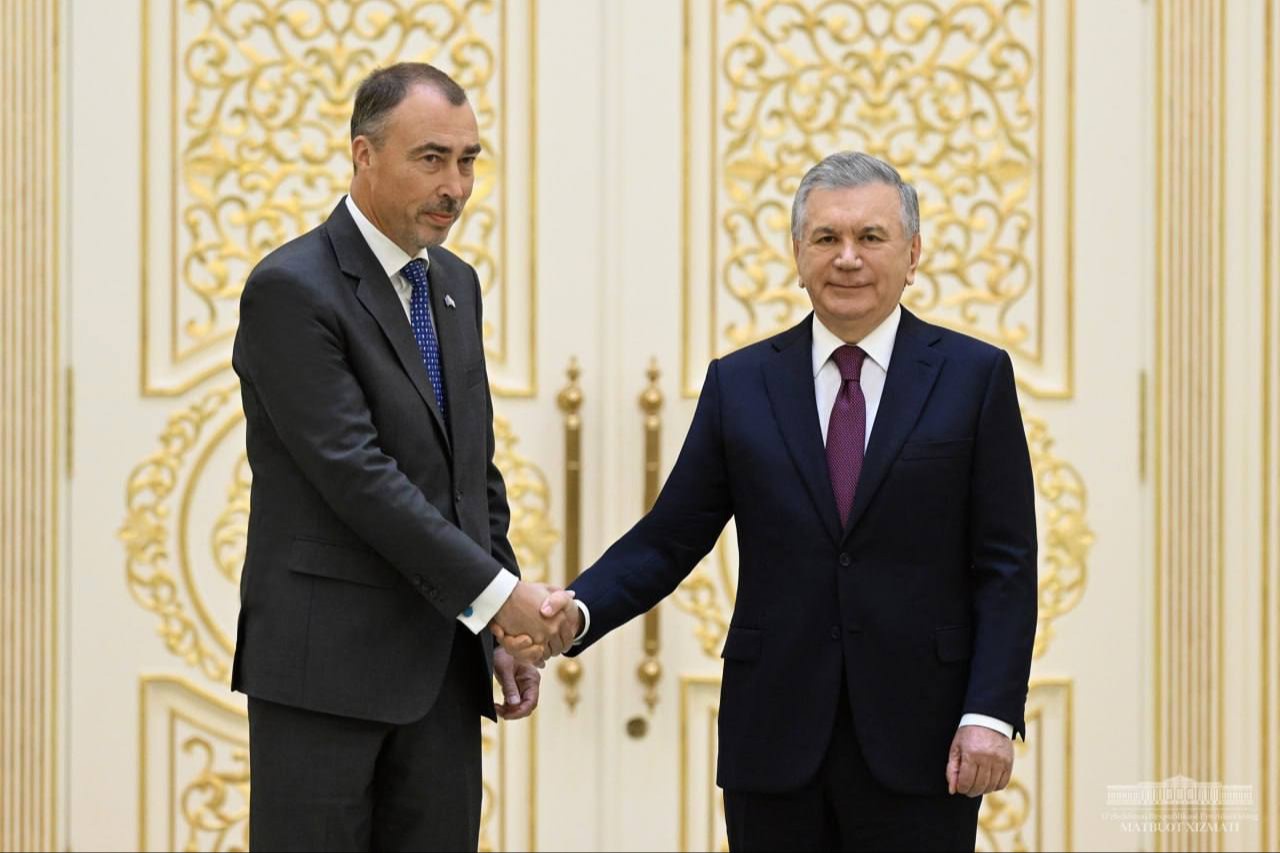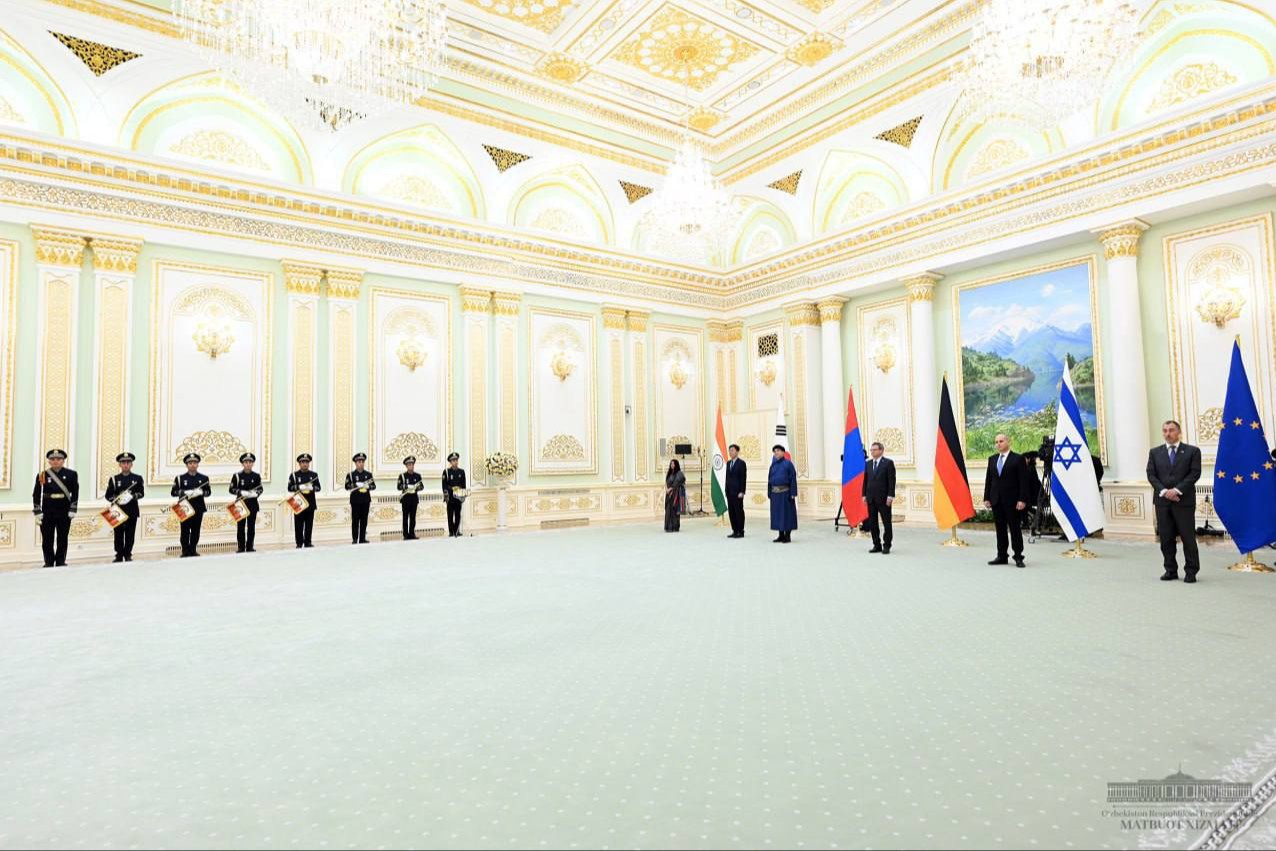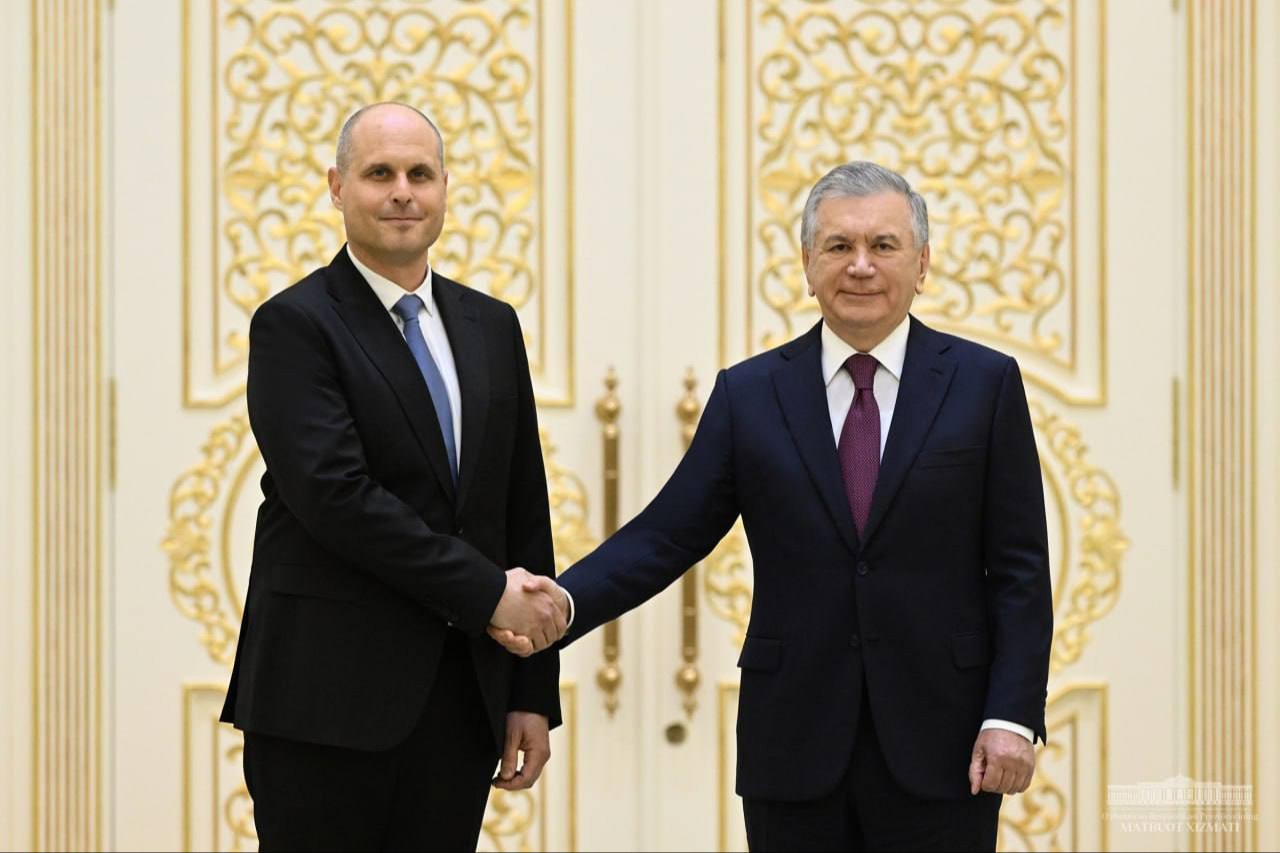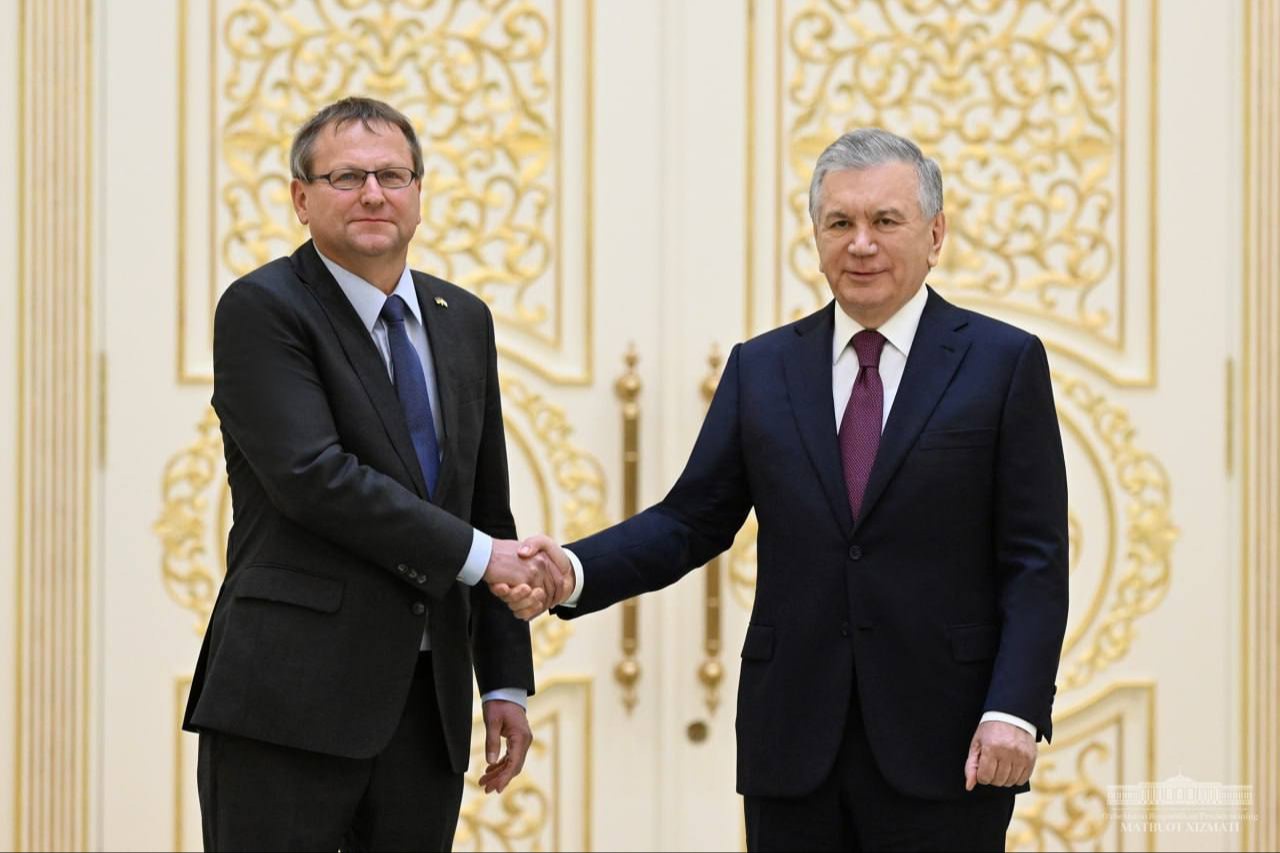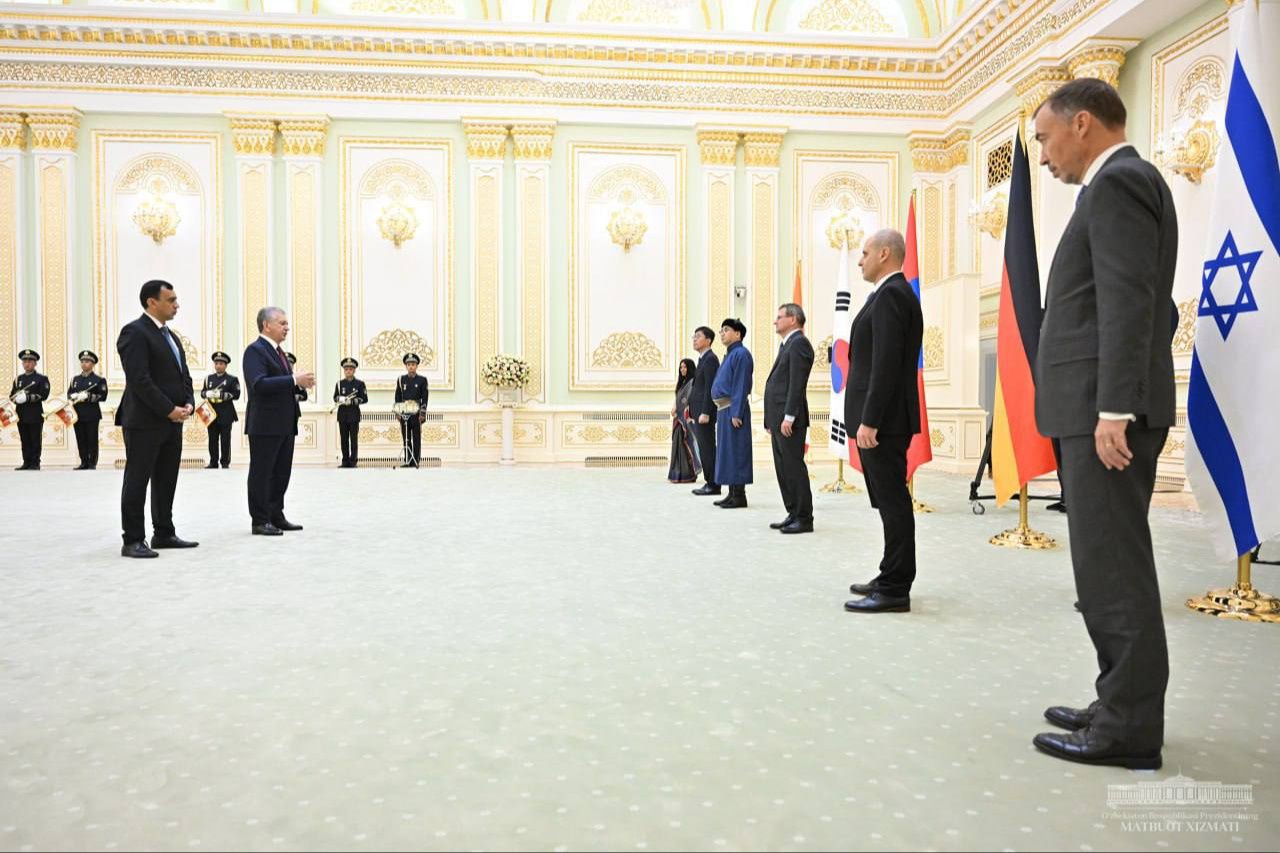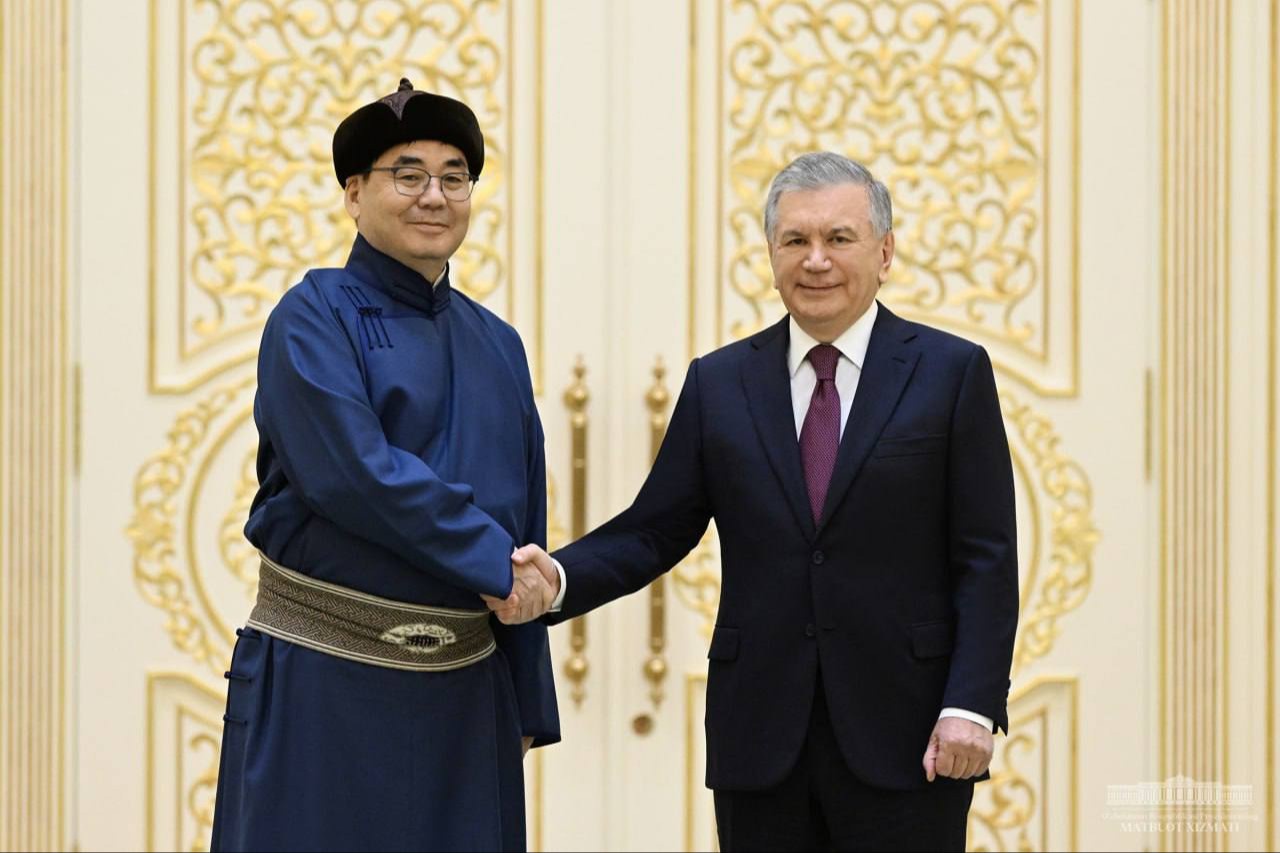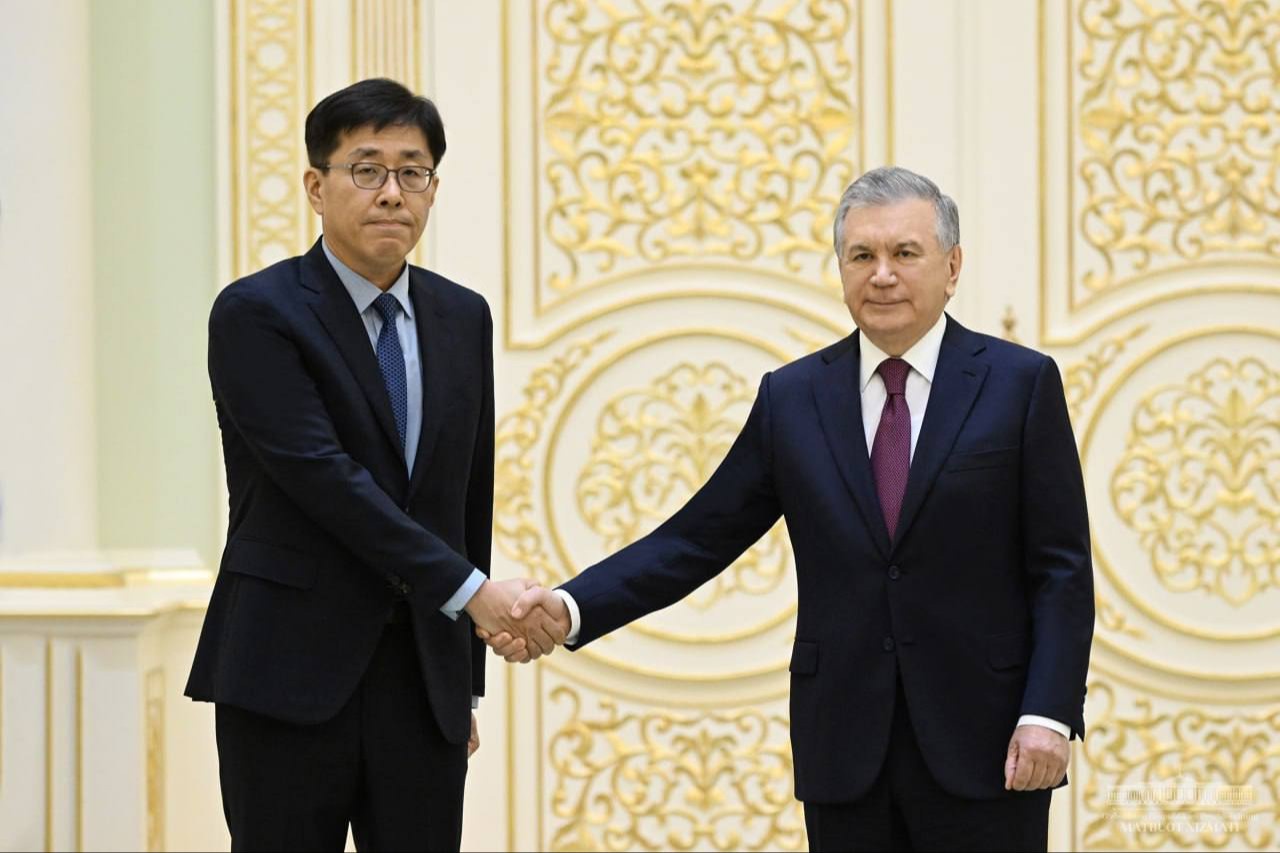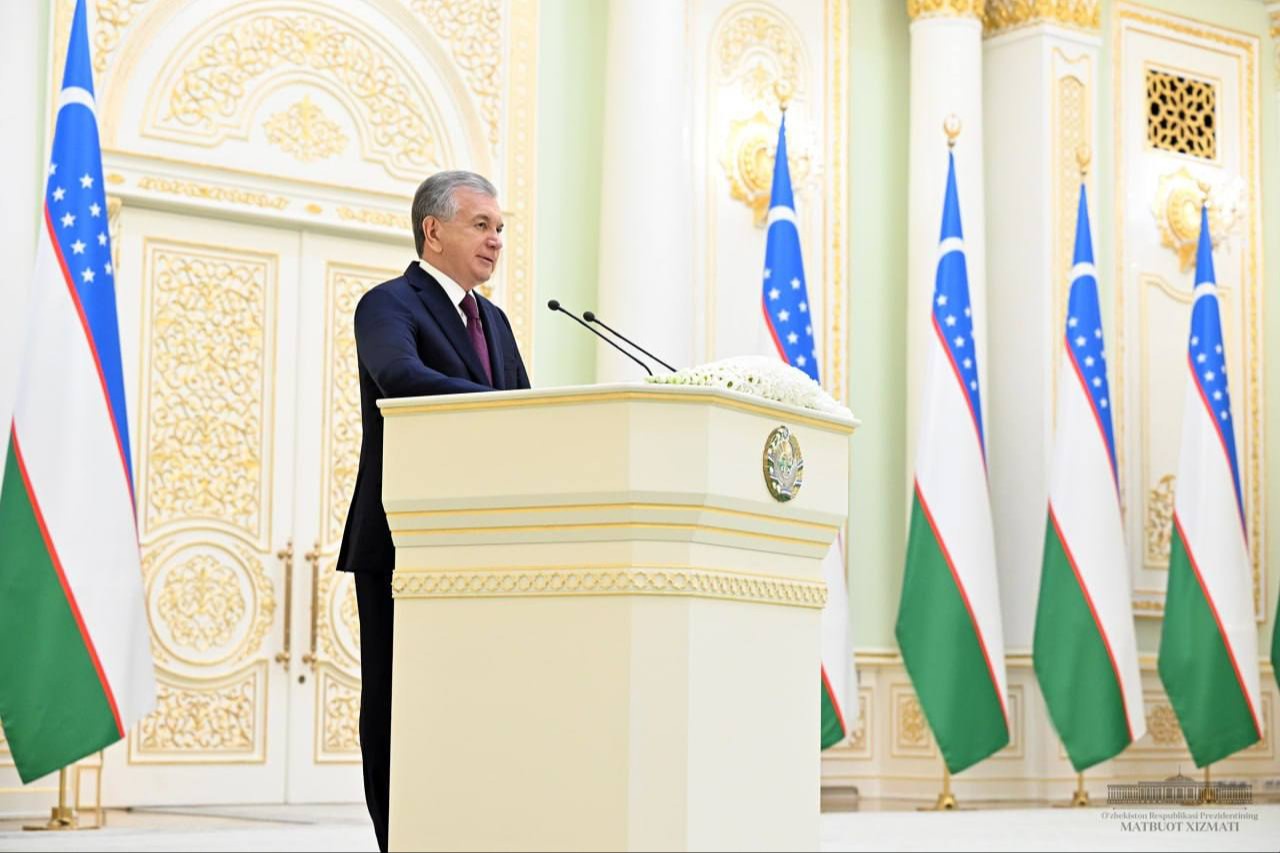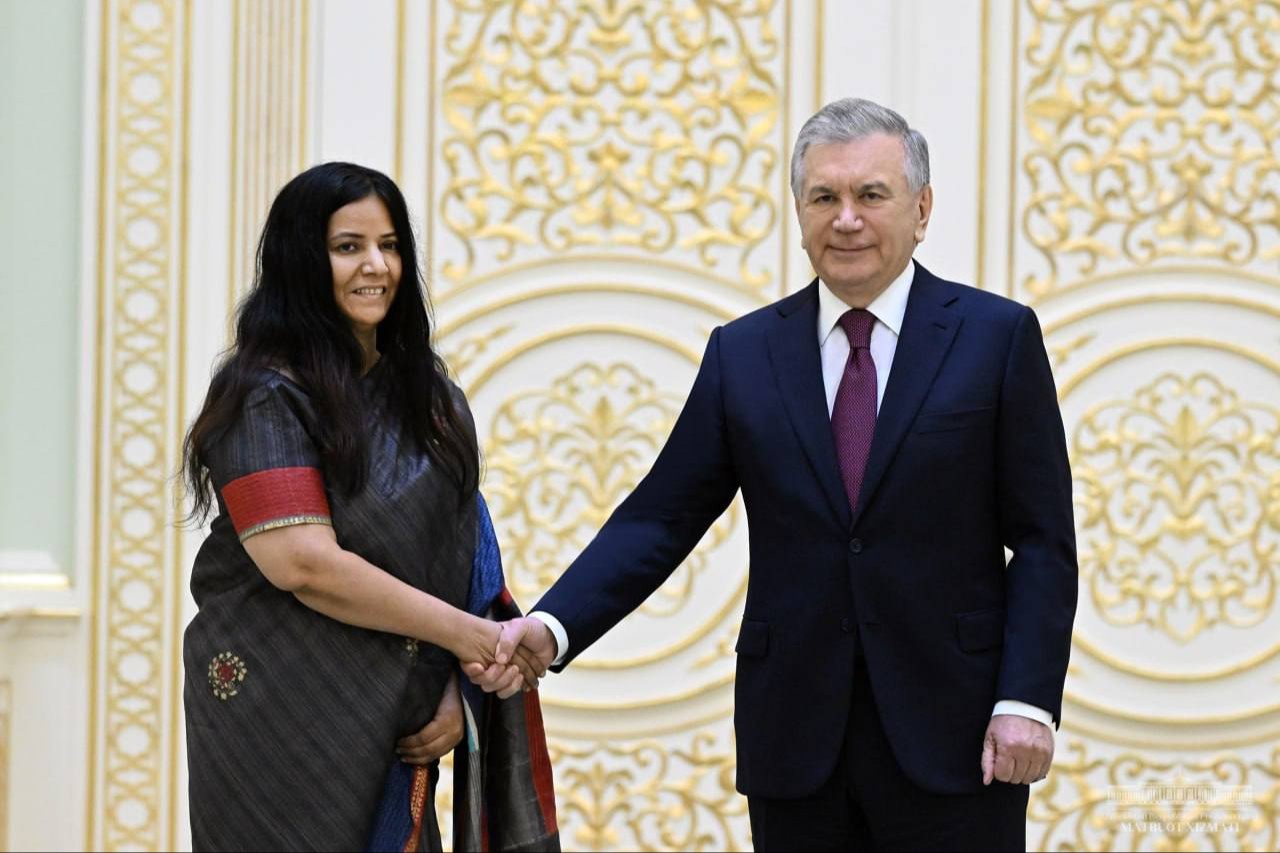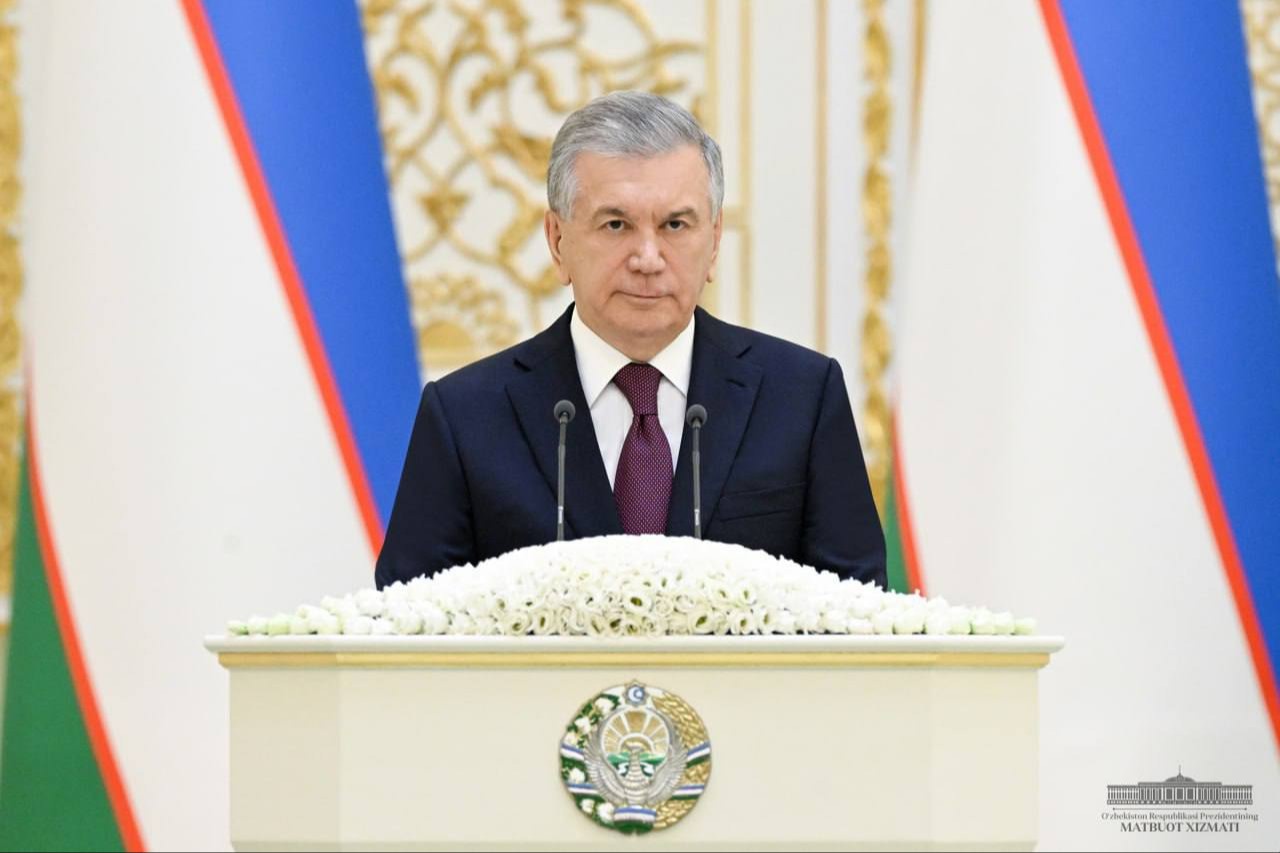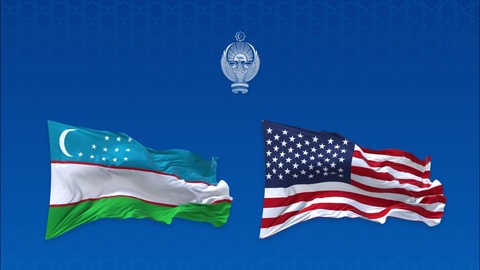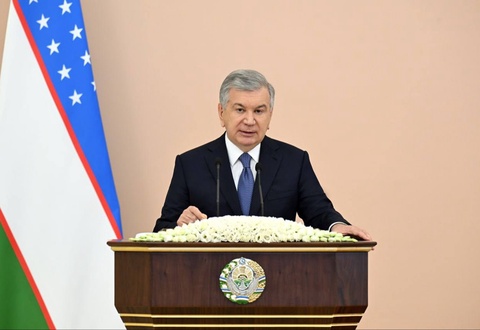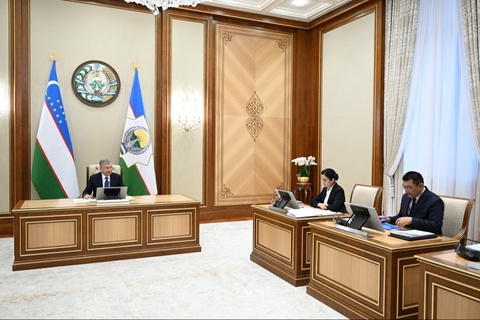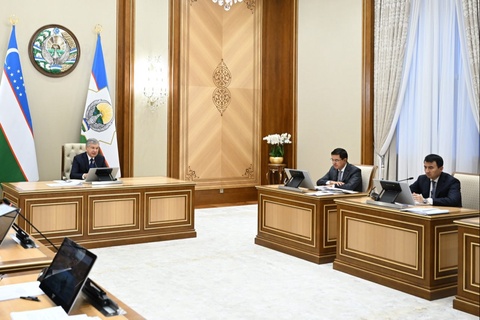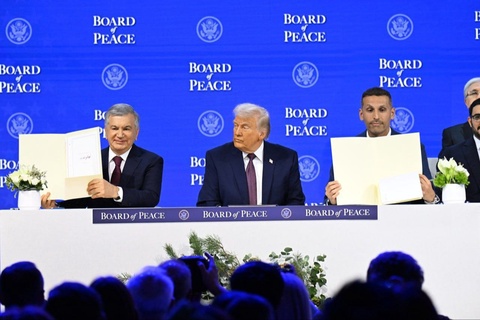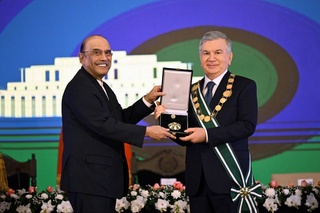The President of the Republic of Uzbekistan Shavkat Mirziyoyev received credentials from the Ambassadors Extraordinary and Plenipotentiary of the Republic of India Smita Pant, the Republic of Korea Won Do-yeon, Mongolia Daadankhuu Batbaatar, the Federal Republic of Germany Manfred Huterer, the State of Israel Gideon Lustig and the head of the European Union delegation Toivo Klaar.
The President of Uzbekistan sincerely congratulated the heads of foreign diplomatic missions on the official start of their honorable and responsible activities in Uzbekistan.
It was noted that today, in the context of an unstable and rapidly changing world situation, the importance of the honorable mission of ambassadors is increasing. These missions aim not only to promote the interests of their countries but also to strengthen friendship and cooperation between people comprehensively.
Due to its open, constructive, and pragmatic foreign policy, the President emphasized that New Uzbekistan’s authority and image in the international arena are increasingly strengthening.
This is confirmed by the adoption by the UN General Assembly, at the initiative of Uzbekistan, of more than 10 special resolutions, including 4 essential documents this year alone.
Despite the challenging global situation, according to World Bank forecasts, Uzbekistan’s economy demonstrates stable growth, which will amount to 5.3 percent this year. According to the International Monetary Fund, last year, the country’s GDP exceeded $100 billion for the first time.
The Summer Olympic and Paralympic Games in Paris became the arena of records and unprecedented achievements of our young athletes, who wrote a new sports history of the country.
“All this is the result of large-scale reforms that have become irreversible”, the Head of state emphasized.
The Republic of Uzbekistan will continue its policy of building a democratic society based on the Uzbekistan 2030 Strategy, liberalizing the economy, modernizing industrial and social infrastructure, and creating broad opportunities for business and investors.
In this regard, the upcoming elections to the Oliy Majlis and local representative bodies next month, which, in accordance with the renewed Constitution, will be held for the first time based on a mixed electoral system, were noted.
In addition, gratitude was expressed to the countries’ governments, represented by the heads of diplomatic missions, for supporting Uzbekistan’s accession to the World Trade Organization.
Addressing the Ambassador of the Republic of India, Smita Pant, the President of Uzbekistan, noted with satisfaction that, thanks to the strong political will of the two countries’ leaders, their strategic partnership has reached a new level.
Since the beginning of this year, bilateral trade has increased by 30 percent, the number of joint ventures and flights is growing, tourism is expanding, and interregional ties are consistently developing. Four branches of Indian universities are successfully operating in Uzbekistan.
The Head of state emphasized the need to increase the volume of mutual trade to $1 billion soon. At the same time, special attention was paid to increasing practical cooperation projects in the digital economy, innovation, IT, healthcare, pharmaceuticals, chemical industry, agriculture, transport, tourism, and other priority areas.
The high potential for developing inter-parliamentary relations and continuing the dialogue in the “India – Central Asia” format was noted.
The Leader of Uzbekistan said that the Republic of Korea is a time-tested special strategic partner and close friend in Asia for us.
During the state visit of President Yoon Suk Yeol to Uzbekistan, an agreement was reached to begin a new stage of multifaceted cooperation between Uzbekistan and Korea. A high-tech and innovative partnership model is being introduced to create a modern industry and infrastructure in Uzbekistan.
The volume of mutual trade is $2.5 billion. More than 700 joint ventures are successfully operating, and the portfolio of new investment projects has reached $10 billion.
Branches of several leading Korean universities and centers for professional education, innovation, and information technology have been opened in Uzbekistan. Advanced experience in creating a preschool education system has been successfully introduced, and large-scale projects in healthcare are being jointly implemented.
“The Children’s Clinic, the House of Korean Culture and Art, Seoul Park, and the street in Tashkent have become vivid symbols of our strong friendship and the Korean diaspora, numbering almost 200 thousand people and an integral part of the multinational people of Uzbekistan, makes a significant contribution to our development”, the President of Uzbekistan emphasized.
The need for full-scale implementation of strategic plans for cooperation with leading companies of the Republic of Korea in critical minerals, semiconductors, chemical industry, green energy, mechanical engineering, smart agriculture, and transport, as well as the importance of further intensifying parliamentary and interregional ties, expanding humanitarian cooperation, and developing multilateral cooperation mechanisms, was noted.
Addressing the Ambassador of Mongolia, the Head of state noted that the recent state visit of President Ukhnaagiin Khurelsukh to Uzbekistan opened a new page in the mutually beneficial relations between Uzbekistan and Mongolia.
The Embassy of Mongolia began its activities in Tashkent. Mutual trade has doubled since the beginning of this year, and contacts between various ministries and agencies have intensified.
The need for unconditional implementation of the agreements reached was emphasized, in particular, on the adoption of the Agreement on Preferential Trade, participation in the development and processing of minerals, the implementation of projects in agriculture, livestock, leather, textile, pharmaceutical, and medicine, the launch of direct flights, and the expansion of educational and cultural programs.
The practicality of strengthening cooperation within the UN, SCO, and other authoritative international structures was noted.
The Leader of Uzbekistan stated that Germany, being one of the leading countries in the world, with its powerful intellectual and economic potential, is a significant and long-term partner of Uzbekistan in Europe.
It was emphasized that the key events marking the beginning of a new era in the history of multifaceted relations between Uzbekistan and Germany were two high-level visits to Germany last year and the recent official visit of Federal Chancellor Olaf Scholz to Uzbekistan.
In recent years, the volume of mutual trade and the number of joint ventures have doubled, and investments have increased 10-fold.
Joint projects worth 9 billion euros are being developed with leading German companies and banks.
Mechanisms are being introduced to expand cooperation with companies such as Siemens, Linde, BASF, MAN, CLAAS, Henkel, Knauf, Papenburg, Deutsche Bahn, and others, and the Industrial and Technological Partnership Program has been adopted.
“At the same time, we expect great results in the cultural, humanitarian, educational, migration, and tourism cooperation”, the President of Uzbekistan emphasized.
He also supported the initiatives aimed at deepening the regional strategic partnership, expressed during the recent Second “Central Asia – Germany” Summit in Astana.
The President of Uzbekistan noted that Israel is an important economic partner.
Last year, the trade volume doubled, and about 120 enterprises with Israeli capital operate in Uzbekistan.
Bukharan Jews, who have lived in Uzbekistan since ancient times, still play the role of a strong connecting thread between our peoples.
The President pointed out the existence of great opportunities for bilateral cooperation. In particular, interest was expressed in developing partnerships in innovation, smart agriculture, water management, resource-saving technologies, pharmaceuticals, and healthcare.
The Head of state confirmed Uzbekistan’s firm commitment to an early and fair settlement of the situation in the Middle East, establishing lasting peace and stability in accordance with generally recognized documents.
The President of Uzbekistan emphasized that the European Union is a reliable and time-tested partner. Relations have consistently developed and recently risen to a new level. This year marks the 30th anniversary of the establishment of diplomatic relations.
The number of high-level visits is growing, strategic partnerships have been established with several European countries, and trade turnover with EU countries increased by 30 percent last year.
Large joint projects are being implemented in the green economy, alternative energy, high-tech industry, innovation, mineral resources, agriculture, ecology, science, and education.
It was noted that the earliest possible signing of the Enhanced Partnership and Cooperation Agreement would deepen the relations.
“We intend to cooperate with the European side in such relevant areas as intensifying political contacts, continuing an open and constructive dialogue on human rights and strengthening democratic institutions, finding new growth points in the economy, investment, transport, and communications, easing the visa regime for mutual trips of our citizens”, the President of Uzbekistan said.
The expansion of the European Union’s cooperation with Central Asia was also noted. In this regard, the Head of state announced preparations for holding the “Central Asia – European Union” Summit in Samarkand next year.
Following the ceremony, the President of Uzbekistan sincerely wished the newly appointed ambassadors great success in their honorable work and recommended that they become more closely acquainted with the results of creative work and reforms, especially in the country’s most remote areas and villages.
In turn, foreign diplomats expressed gratitude for the warm welcome and conditions created to effectively implement their activities aimed at the comprehensive strengthening of mutually beneficial multifaceted cooperation and the implementation of joint projects.


